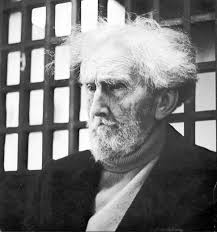🦋 Pitch-perfect
My initial reaction to part 2 of Life and Times of Michael K was to feel kind of let down at the change in narrative perspective -- it seemed kind of like if the the next section after Benjy's narrative in The Sound and the Fury had been told a clinician attempting to diagnose Benjy... But I warmed to it pretty quickly. It is not Michael's story, this section of the novel is the doctor's story; I could express it as a criticism of Coetzee, that he is only telling one person's story at a time, not allowing his characters to interact -- but I think this sort of solitude is part of the fabric of the universe he has built here. As the section goes on, Coetzee seems more and more comfortable in the doctor's consciousness. This passage, from just after they've found that Michael has absconded, is full of rigor and insight and beauty:
It occurred to me that if I followed after him, proceeding down the avenue in a straight line, I could be at the beach by two o'clock. Was there any reason, I asked myself, why order and discipline should not crumble today rather than tomorrow or next month or next year? What would yield the greater benefit to mankind: if I spent the afternoon taking stock in my dispensary, or if I went to the beach and took off my clothes and lay in my underpants absorbing the benign spring sun, watching the children frolic in the water, later buying an ice-cream from the kiosk on the parking lot, if the kiosk is still there? What did Noël ultimately achieve labouring at his desk to balance the bodies out against the bodies in? Would he not be better off taking a nap? Maybe the universal sum of happiness would be increased if we declared this afternoon a holiday and went down to the beach, commandant, doctor, chaplain, PT instructors, guards, dog-handlers all together with the six hard cases from the detention block, leaving behind the concussion case to look after things. Perhaps we might meet some girls. For what reason were we waging the war, after all, but to augment the sum of happiness in the universe? Or was I misremembering, was that another war I was thinking of?
 Also in this section we get (from Noël) the first mention of any concrete dates -- he is 60 years old, and he was a child "in the 1930's" -- this seems to confirm my idea that the novel is set around 1980. And again from Noël, the first mention of race in the novel, in a context that I am having a lot of trouble making any sense of: In response to the doctor's question of why they are fighting the war, he says "We are fighting this war so that minorities will have a say in their destinies." So first off, does "minorities" mean "non-white people" in South African usage? I had figured that was an American idiom -- it certainly doesn't make sense in South Africa where Boers are less than 10% of the population. And what would it mean for someone working for the South African army in 1980 to say that? I'm just confused here.
posted afternoon of Sunday, June 21st, 2009
➳ More posts about Life and Times of Michael K
➳ More posts about J.M. Coetzee
➳ More posts about Readings

I had to search for that passage till I found it. In the spanish edition it's "minorities" as well, so it's not a translation problem. I guess I overlook this phrase when I read it, and now I'm just as confused as you.
Funnily enough, I didn't even remember there was a second part with the doctor's point of view. I'd say Life and Times.. it's the Coetzee book I've enjoyed the less, I think. I couldn't relate at all to Michael, and thus the reading was slower than my usual rate for Coetzee's novels.
posted afternoon of June 21st, 2009 by Jorge López

I think The Complete Review is correct -- this is a fictional civil war, parallel to the US Civil War, in which the South African government has decreed civil rights for non-whites and is fighting against the northern provinces to enforce that. Kind of a huge backstory to leave out until the very end, and then just reference in a single sentence... I liked this book all right -- I could relate to Michael and I felt myself wrapped up in his experiences. Loved the descriptive language. Certainly I don't think it had as much meat in it, as much to think about, as say Elizabeth Costello -- it was a quick read for me -- but an engaging, energizing one. I think Coetzee was trying to emulate Kafka in this book, and I think in some places he was successful.
posted evening of June 21st, 2009 by Jeremy

I got stuck reading The Complete Review, and found out there's another Elizabeth Costello episode here: http://www.nybooks.com/articles/16872
posted evening of June 21st, 2009 by Jorge López

Nice -- thanks. BTW with respect to it being "a translation problem", I thought Coetzee writes in English -- does he not? There is no translator credited in my copy of Michael K -- and Wiki describes Coetzee as a Professor of English Lit. I had been assuming English was his primary language. The novel contains occasional phrases in Afrikaans, which I don't think it would if it were written in that language and translated to English.
posted evening of June 21st, 2009 by Jeremy

You're right. In fact he left South Africa for England as a young and now he's an Australian citizen.
posted evening of June 21st, 2009 by Jorge López
|







 At Orbis Quintus, paledave
At Orbis Quintus, paledave  B. Dilly had to
B. Dilly had to  Runnin' Scared
Runnin' Scared 